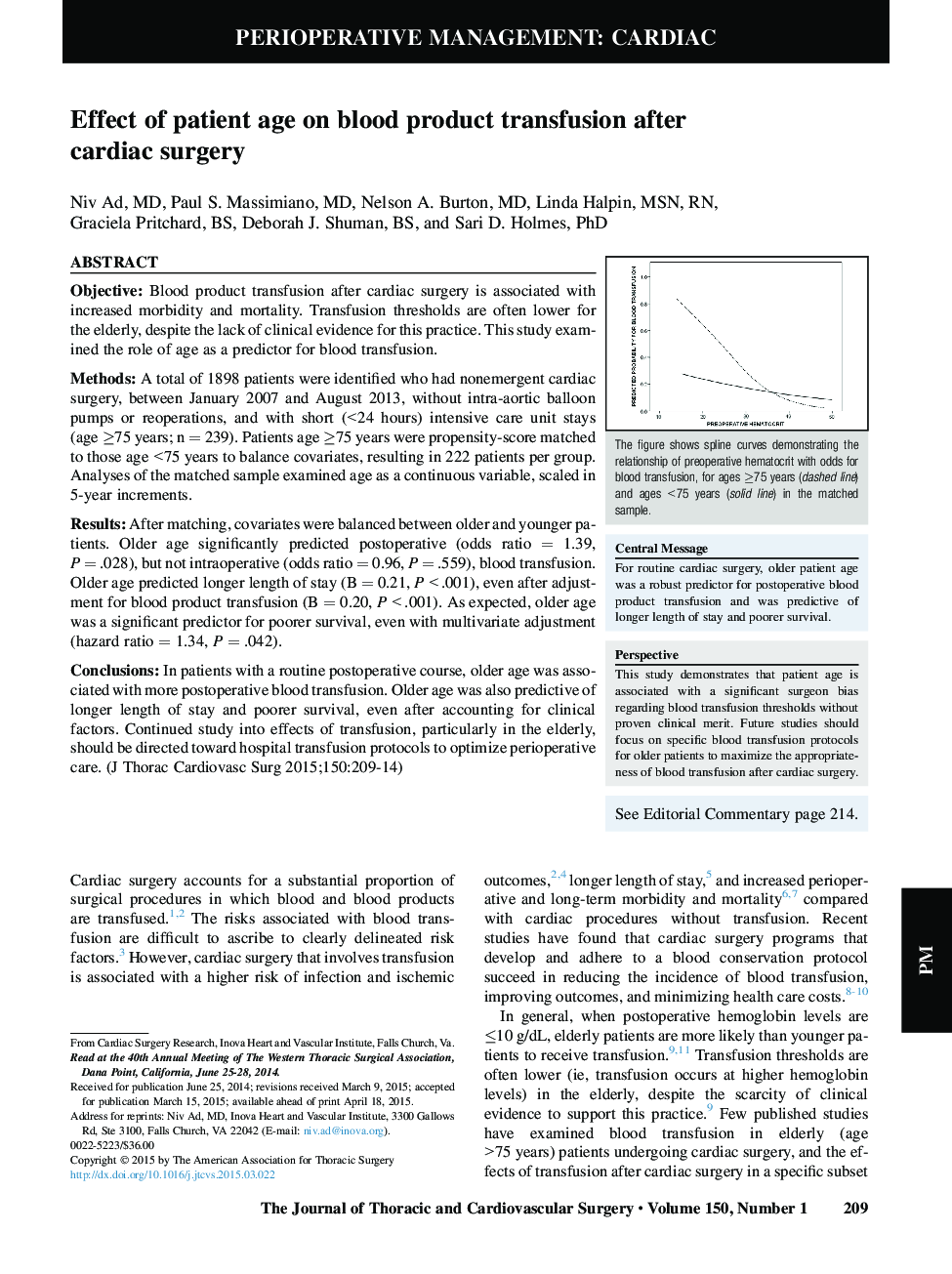| Article ID | Journal | Published Year | Pages | File Type |
|---|---|---|---|---|
| 2979168 | The Journal of Thoracic and Cardiovascular Surgery | 2015 | 6 Pages |
ObjectiveBlood product transfusion after cardiac surgery is associated with increased morbidity and mortality. Transfusion thresholds are often lower for the elderly, despite the lack of clinical evidence for this practice. This study examined the role of age as a predictor for blood transfusion.MethodsA total of 1898 patients were identified who had nonemergent cardiac surgery, between January 2007 and August 2013, without intra-aortic balloon pumps or reoperations, and with short (<24 hours) intensive care unit stays (age ≥75 years; n = 239). Patients age ≥75 years were propensity-score matched to those age <75 years to balance covariates, resulting in 222 patients per group. Analyses of the matched sample examined age as a continuous variable, scaled in 5-year increments.ResultsAfter matching, covariates were balanced between older and younger patients. Older age significantly predicted postoperative (odds ratio = 1.39, P = .028), but not intraoperative (odds ratio = 0.96, P = .559), blood transfusion. Older age predicted longer length of stay (B = 0.21, P < .001), even after adjustment for blood product transfusion (B = 0.20, P < .001). As expected, older age was a significant predictor for poorer survival, even with multivariate adjustment (hazard ratio = 1.34, P = .042).ConclusionsIn patients with a routine postoperative course, older age was associated with more postoperative blood transfusion. Older age was also predictive of longer length of stay and poorer survival, even after accounting for clinical factors. Continued study into effects of transfusion, particularly in the elderly, should be directed toward hospital transfusion protocols to optimize perioperative care.
